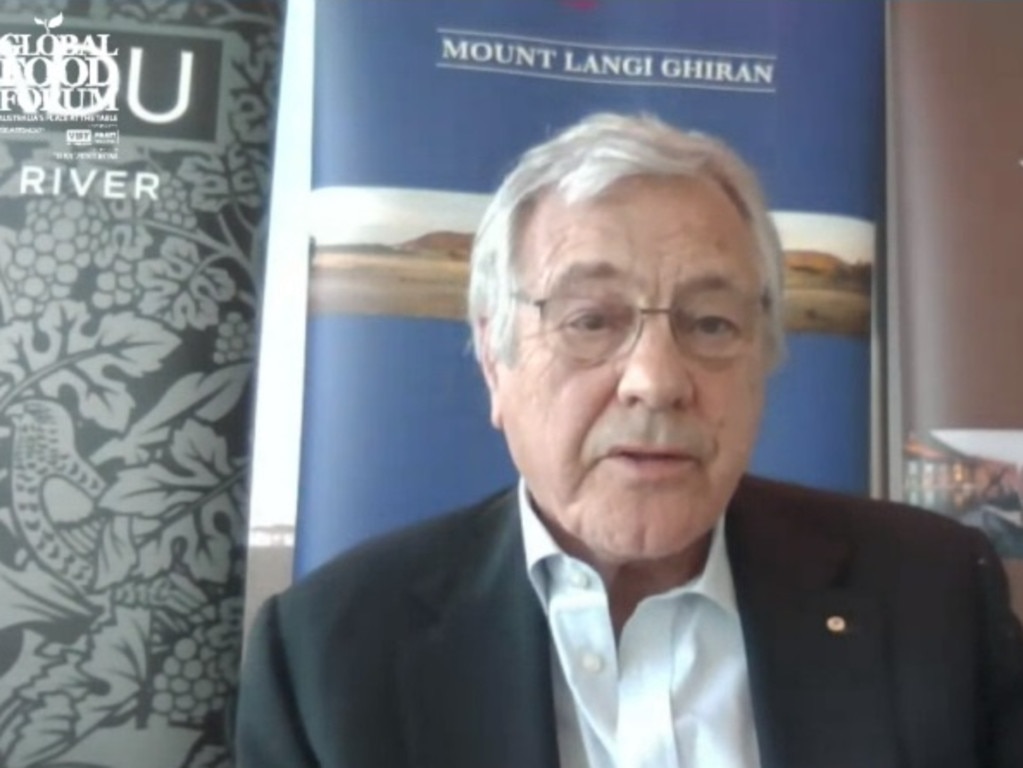
A barometer of confidence in the agribusiness sector, the forum has seen year after year of optimism about the potential of the Chinese market for producers of meat, grains, dairy, fruit and other products.
Australia’s agricultural exports to China have been a mainstay of the trade relationship, which hit record levels of more than $200bn-plus last year. In sectors such as wine, beef and grains, China has become Australia’s largest export market.
Exports were helped considerably by the advent of the free-trade agreement with China that came into force in December 2015, effectively removing tariffs on many exports to China.
But it is far more than that.
China’s growing ranks of middle-class consumers like Australian wine, from Penfolds to the lower-priced Rawson’s Retreat. Its beer industry loves Australian barley with local growers tailoring their crop for the Chinese market.
Consumers there also love Australian meat and dairy products, associated in their mind with quality and high safety standards.
Australian farmers and agribusiness executives such as panellist Doug Rathbone have been going to China since it began opening up in the late seventies. They have built up strong bonds based on genuine complementarity between buyers and sellers.
Fast forward to October 2020 and it is now clear that worsening political ties between Australia and China are hitting agribusiness — despite the fact that China’s economy is now one of the strongest performing in an otherwise COVID-infected world.

This year has been an annus horribilis for the industry when it comes to their biggest potential market. It has been the year when the insistence by the federal government that deteriorating political ties would not affect trade relations began to look very thin as sector after sector was made aware of China’s cooling tone.
One of the most efficient in the world, with a minimum of government assistance, Australian agribusiness just wants to get on with a thriving export trade to China.
But any pretence that it will be business as usual was smashed in May, when the $1.2bn barley trade was hit by the imposition of 80 per cent tariffs that have effectively killed its largest export market.
In comments to the forum, Victorian farmer Brett Hosking, who chairs industry lobby group Grain Growers, told how the tariffs had “ripped the confidence” out of the barley industry, moving on to infect the mood in the wheat industry that also sells to China.
As barley farmers start their harvest, Hosking talked of the loss of dollars flowing over into farming communities where there is now less money to go around.
The imposition of tariffs on barley was made after an anti-dumping investigation by China’s Ministry of Commerce.
The wine industry, which has enjoyed a $1bn-plus market in China, is now bracing for its turn with the announcement in September of an anti-dumping investigation against three wine makers (one owned by Chinese Australians). The announcement could see tariffs imposed on wine as soon as this month.
But if the barley experience is any guide, it could hang over the industry for the next 18 months before a decision is made.
That said there is still huge potential demand for Australian agribusiness products that could weather the storm in the longer term. As China veteran, founder and CEO of infant formula maker Bubs, Kristy Carr said, doing business with China has never been easy.
But she remains an enthusiast, looking forward to next month’s November 11 Singles Day online shopping bonanza that could see a strong demand for her company’s products.
A lack of Chinese tourists and students in Australia, because of COVID-19 travel restrictions, has hit the traditional daigou trade channel to China for her products, as has the higher cost of freight.
But Carr stills sees a strong upside in China, at the same time as diversifying into other markets such as Vietnam.
Coca-Cola Amatil boss Alison Watkins told the forum that China would continue to be an important market for the industry.
“Demand for food globally is going to grow 70 per cent to 2050 and about 70 per cent of that is going to come from the Asian markets,” Watkins said. “A big proportion of that, simply because of the weight of population, is going to come from China.
“The Chinese market is a really important one for us. We have developed very good relationships with China, we have built a lot of confidence and there is a two-way, mutual benefit that flows from that.”
Putting it politely, she said it was “really unfortunate” if it were to get “caught up” in other issues.
She agreed concerns about “strategic alliances, security, cybersecurity” were all important.
“However, it is equally important that we take a pragmatic approach and continue to work on all fronts and very much that business continues to keep the channels open, that our government representatives keep the conversations moving and we work together,” Watkins said.
Visy executive chairman Anthony Pratt stressed the importance of Australia seeking to diversify its export markets.
Exporters are doing that. But the market in China is still by far the largest if we can get it right.
Watkins’ point is important — the need to keep channels of communication open despite specific political tensions.
Doing business with China has never been easy, but of all the sectors of the economy, the agribusiness sector has a unique combination of long-standing ties with China and a flexibility to work its way through the current rocky waters. That said, 2021 could test the political and trade relationship like never before.








The spectre of Australia’s worsening relations with China hung like a grey cloud over the first day of The Australian’s eighth annual Global Food Forum on Wednesday.